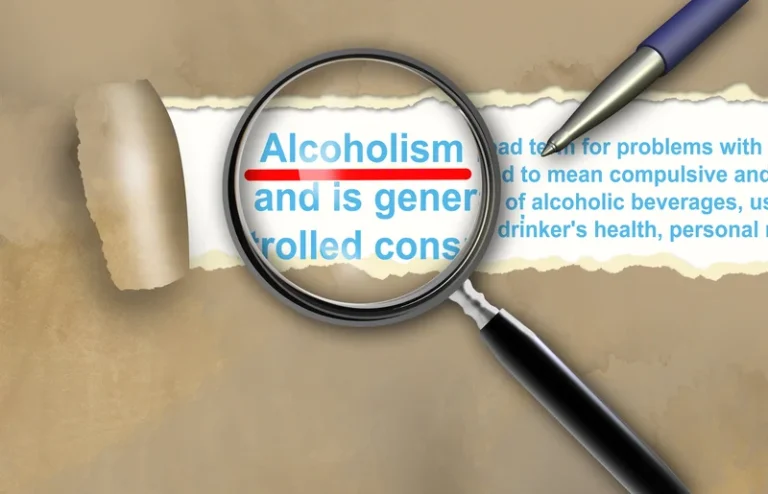
Inpatient treatment requires more dedication and involves living in a rehab center to get intensive treatment that is more likely to have a lasting effect. The early stages of any form of dementia tend to be subtle and difficult to notice. People are generally able to live independently during the early stages of dementia, but subtle memory problems, such as losing items frequently, may occur. People with early-stage dementia may also find it more difficult to make complex decisions and express themselves.

Guidelines for moderate drinking
Ehlert adds that while A-fib is “rarely an immediately life-threatening condition,” if you feel your heart “racing” or experience shortness of breath or lightheadedness, it’s best to seek medical attention for help with treating those symptoms. A-fib is one of the most common causes of stroke and can lead to increased risk of heart failure, blood clots, chronic kidney disease and dementia. Several treatment options and interventions can help a person recover from alcohol dependence. Once a person stops using alcohol, they can often experience recovery from symptoms, though in some cases, some damage may be permanent.
Check blood pressure and cut down on wine o’clock
Sometimes, physical changes such as movement disorders or coordination problems can help differentiate types of dementia. A diagnosis of dementia requires a comprehensive physical and psychological evaluation. This includes cognitive testing, which involves assessing thinking and problem-solving skills. Design, Setting, and Participants This is a retrospective cohort study. Data were obtained from the Korean National Health Insurance Service database. Adults aged 40 years and older underwent 2 health examinations in 2009 and 2011.
How Alcohol Is Linked to Memory Loss

An increasing number of cohort studies from different countries continue to be published. The results are heterogeneous concerning light to moderate consumption, while there is a consensus regarding high consumption and elevated dementia risk (see Table 2). Quitting drinking will prevent additional loss of brain function and damage. Also, improving the patient’s diet can help; however, diet does not substitute for alcohol abstinence in preventing alcohol-related dementia from worsening.
- Symptoms tend to develop gradually and worsen over time if you continue drinking.
- The cohort was assessed until December 31, 2018, and statistical analysis was performed in December 2021.
- It’s characterized by eye movement problems, discoordination and confusion.
- Wernickes encephalopathy is the acute stage resulting from thiamine deficiency.
While light or moderate drinking may protect against the development of Alzheimer’s disease, chronic alcohol use over an extended period can cause irreversible brain damage. This excessive consumption puts a person at risk of various brain diseases, including AD, stroke, and heart disease. The purpose of this review is to give an overview about the dose- and pattern-related effects of https://ecosoberhouse.com/ alcohol on the risk of developing dementia, while trying to differentiate different neurodegenerative, vascular and other forms of dementia. The first part of the review will give an overview about alcohol effects on the central nervous system and summarize findings with different methodological approaches (biochemical methods, histopathological findings, animal models, neuroimaging).

A lot of the brain damage that is caused by alcohol happens because it prevents the body from getting enough thiamine (vitamin B1). ARBD is caused by a person regularly drinking or binge-drinking much more alcohol than the recommended limit. Alcohol can damage the brain in several different ways, but the most common are the following. Drinking alcohol with Aricept (donepezil), a medication for certain types of dementia, can prevent it from working properly and increase the risk of side effects. Alcohol-related dementia and Wernicke-Korsakoff syndrome may develop due to regular excessive alcohol consumption over many years.

What to know about alcoholic dementia
Participants were followed until 2021, during which time any diagnoses of dementia were recorded. The island is among many countries lacking a national dementia plan even as its ageing population means numbers will increase. Early detection and treatment is important as it can reduce the risk of serious outcomes, such as stroke and blood clots.
- A lifelong approach to good health is the best way to lower your risk of dementia.
- People with early-stage dementia may also find it more difficult to make complex decisions and express themselves.
- Therefore, there is also a need for the use of standardized objective measures of dementia and cognitive decline, using current consensus criteria.
- Some people with ARBD will only have small changes to their thinking and memory, known as mild cognitive impairment (MCI).
- A diagnosis of dementia requires a comprehensive physical and psychological evaluation.
These changes were not limited to neurons alone — supporting cells such as astrocytes, microglia, and endothelial cells also displayed altered gene expression patterns in response to alcohol exposure. “We know that inhalational use of alcohol can lead to higher brain concentrations than the oral route. Metabolism of ethanol changes can alcoholism cause dementia when exposure bypasses the [gastrointestinal] tract. This can lead to some variables that make the study slightly more difficult to interpret,” Dr. Majlesi said. Introducing ethanol to a genetic background prone to Alzheimer’s disease (AD) accelerates the onset of the condition by several months or even a few years.
However, if you catch the signs early, it is possible to reverse some of the disease process with nutrition therapy and abstinence from alcohol. Once it progresses to Korsakoff syndrome, the damage to the brain and nervous system may be too severe to reverse. Many studies show that heavy drinkers have less brain volume overall with evidence of impaired memory, attention span, judgment, and other aspects of cognitive functioning. Neural connections are weakened or lost, and the reward system pathways no longer function as they once did. The end stage of alcoholism is linked with severe brain damage as well as liver problems that can add additional symptoms of brain fog, confusion, and delirium. Wernicke-Korsakoff syndrome (WKS) is a type of dementia linked to heavy alcohol use.

